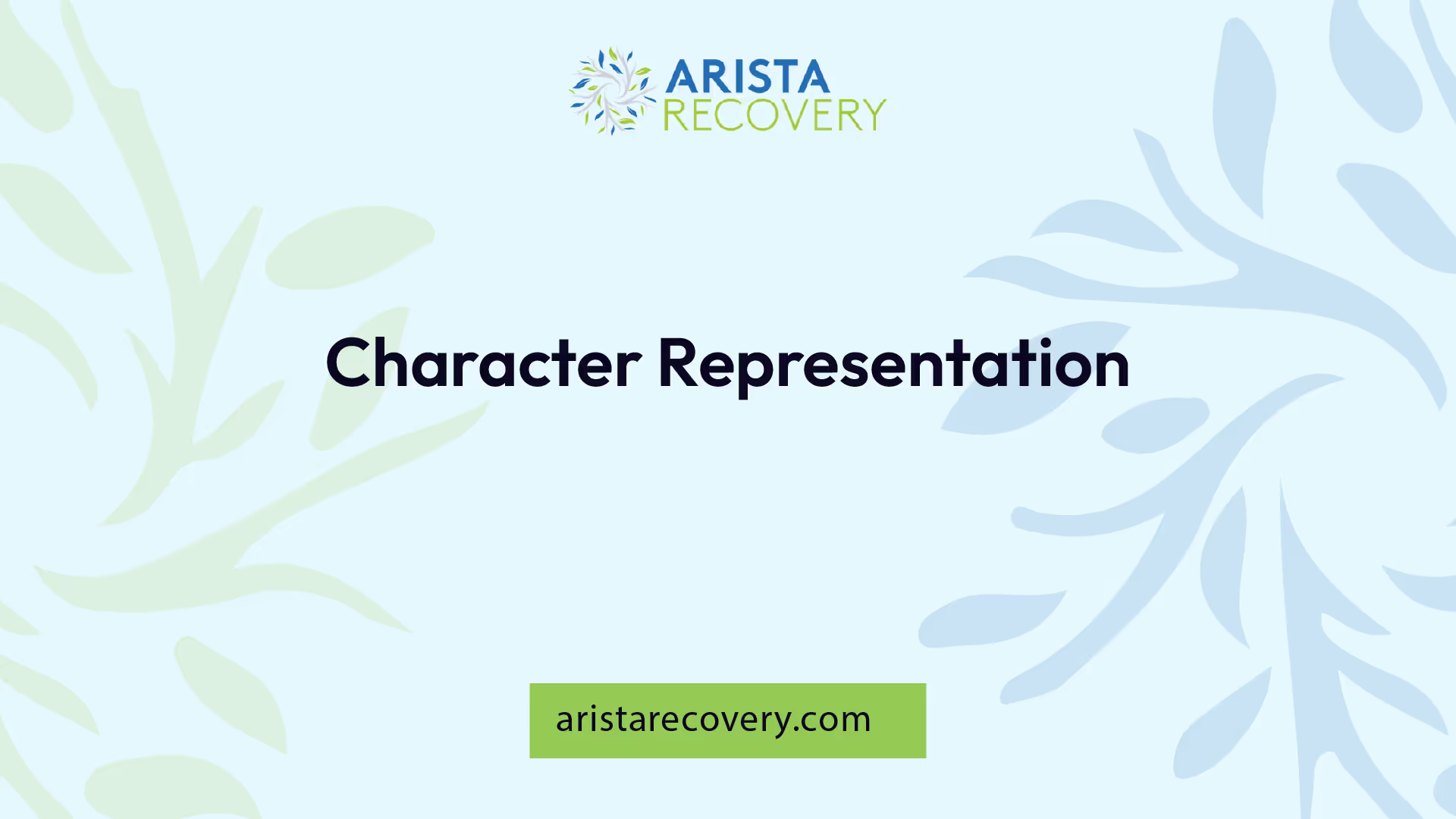Films Depicting Realistic Addiction Journeys

Realistic Films Portrayal
Realistic films depicting addiction journeys prioritize authenticity in characters and storylines, aiming to present a genuine portrayal of the complexities of addiction, including struggles with internal conflicts, relapses, and challenges of recovery. These films focus on embracing authenticity to create a narrative that resonates with viewers on a deeper level. By staying true to the realities of addiction, these films make a lasting impact on the audience, eliciting emotional responses and promoting empathy and understanding.

One notable example is "Requiem For A Dream," directed by Darren Aronofsky, which stands out as a poignant and realistic portrayal of addiction. Released in 2000, the film follows the struggles of four individuals dealing with substance use, showcasing how addiction can manifest in different forms. By steering clear of specific substance references, the film delves into the emotional voids and dependencies experienced by the characters beyond drugs. Through stylized montages, the movie captures the anxiety and stress induced by drug use, contrasting the characters' aspirations with the dark path of addiction, as noted by Addiction Center.
Another impactful film, "Beautiful Boy," sheds light on the realities of substance use disorder and its effects on familial relationships. This movie offers a dual perspective on addiction from both the user, Nick, and his father, David, highlighting the emotional turmoil and desperation involved in supporting someone with a meth addiction. The raw and unfiltered portrayal in "Beautiful Boy" serves as a powerful narrative to raise awareness and prompt conversations about addiction.
Realistic films about addiction play a crucial role in breaking stigmas surrounding substance use and mental health. By realistically depicting the struggles faced by individuals grappling with addiction, these films encourage understanding and compassion among viewers. They provide a platform to address societal misconceptions and shed light on the multifaceted nature of addiction, fostering a more empathetic and informed society.

Character Representation
The portrayal of characters in realistic films about addiction plays a crucial role in shaping the audience's perception of individuals grappling with addiction. These films aim not only to entertain but also to educate and raise awareness about the complexities of addiction.
Breaking Stigmas
One of the primary objectives of realistic films about addiction is to break the stigmas associated with substance abuse. By humanizing individuals struggling with addiction and presenting their battles in a relatable manner, these films strive to foster a more compassionate and empathetic view of addiction. Rather than glamorizing substance abuse or perpetuating stereotypes, these films make a conscious effort to portray the harsh realities and negative consequences of addiction [2].
By showcasing the diverse backgrounds and experiences of characters, realistic films aim to dispel common misconceptions and stereotypes surrounding addiction. Through authentic storytelling and honest portrayals, these films challenge societal perceptions and encourage audiences to view addiction through a more empathetic lens.
Encouraging Understanding
Realistic films about addiction focus on encouraging understanding among viewers by presenting an authentic depiction of the struggles and challenges faced by individuals battling addiction. These films prioritize authenticity in characters and storylines, aiming to provide a genuine portrayal of the complexities of addiction. From internal conflicts to relapses and the arduous journey of recovery, these films offer a comprehensive view of the multifaceted nature of addiction [2].
Movies such as "Trainspotting," "Requiem for a Dream," and "The Lost Weekend" have made a lasting impact by realistically portraying addiction in raw and authentic ways. These films shed light on the struggles and consequences faced by individuals and their loved ones, helping to raise awareness, foster empathy, and challenge societal stigmas surrounding substance abuse.
Through the nuanced representation of characters and their journeys, realistic films about addiction aim to bridge the gap between perception and reality, providing insight into the lives of those affected by addiction. By depicting the humanity, resilience, and struggles of individuals battling addiction, these films encourage audiences to empathize, understand, and support those on their path to recovery.

Themes and Storylines
When exploring realistic films about addiction, filmmakers delve deep into the complexities and realities of addiction, shedding light on the multifaceted nature of substance abuse and its impact on individuals and society.
Complexities Explored
Realistic portrayals of addiction in films often delve into the intricate web of factors that contribute to the development and perpetuation of addictive behaviors. These complexities go beyond the surface-level depiction of substance abuse and delve into the psychological, emotional, and social dynamics that underlie addictive behaviors.
Films like "Trainspotting" and "Requiem for a Dream" have been lauded for their nuanced exploration of addiction, capturing the internal struggles, external influences, and underlying motivations that drive individuals toward substance use [4]. By presenting addiction as a multifaceted issue influenced by a myriad of factors, these films challenge viewers to confront the complexity of the human experience and the challenges faced by individuals grappling with addiction.
Realities of Addiction
Realistic films about addiction strive to portray the harsh realities of substance abuse, offering a raw and unfiltered look at the devastating effects of addiction on individuals, families, and communities. By presenting addiction in all its starkness, these films aim to raise awareness, foster empathy, and spark meaningful conversations about the impact of substance abuse on society.
"Requiem For A Dream" stands as a poignant example of a film that confronts the stark realities of addiction head-on. Directed by Darren Aronofsky, the movie offers a harrowing portrayal of four individuals grappling with substance use, illustrating the destructive nature of addiction and its profound impact on personal relationships and aspirations [1]. By spotlighting the emotional voids and dependencies that fuel addictive behaviors, the film underscores the haunting realities of addiction beyond the mere physical act of substance use.
Classic films like "The Lost Weekend" and "Days of Wine and Roses" have also played a pivotal role in depicting the harsh realities of addiction, particularly alcoholism. Through these cinematic masterpieces, the physical and emotional toll of alcoholism is depicted with respect and realism, offering a sobering portrayal of the devastating effects of addiction on individuals and their loved ones [4].
In essence, realistic films about addiction serve as powerful tools for fostering understanding, compassion, and dialogue around the intricate nuances and harrowing truths of substance abuse. By authentically capturing the complexities and realities of addiction, these films prompt viewers to confront the uncomfortable truths of addiction and challenge societal stigmas and misconceptions surrounding this critical issue.
Balance of Entertainment and Realism
Finding the right equilibrium between entertainment and realism is crucial when creating films that depict addiction journeys.
Engaging Narratives
Filmmakers understand the significance of weaving engaging narratives when portraying addiction in a realistic light. The compelling storytelling not only captivates the audience but also educates them on the complexities and struggles faced by individuals battling addiction. By immersing viewers in the characters' emotional journeys, these films create a lasting impact that fosters empathy and understanding.
Ethical Considerations
In the realm of depicting addiction, ethical considerations play a pivotal role. It is imperative for filmmakers to balance the entertainment aspect with realism to ensure that the narrative remains authentic and respectful. Avoiding harmful stereotypes and sensationalism is crucial in portraying the realities of addiction without glorifying or trivializing the struggles individuals face. Addressing ethical concerns appropriately helps in promoting a more nuanced understanding of addiction within society.
When selecting films that offer authentic portrayals of addiction, acclaimed works such as "Trainspotting" and "Requiem for a Dream" stand out. Directed by Danny Boyle, "Trainspotting" delves into the gritty realities of heroin addiction, shedding light on the harsh consequences of substance abuse in a raw and unfiltered manner. On the other hand, "Requiem for a Dream" directed by Darren Aronofsky explores various forms of addiction and the devastating impact it has on the characters' lives, showcasing the grim aftermath of addiction's grip on individuals. These films contrast addiction with the potential of characters, emphasizing the harsh realities while offering a glimpse of hope and redemption.
For more in-depth insights into realistic films about addiction and their impact on raising awareness and understanding, visit our article on realistic films about addiction. As the film industry continues to evolve in its portrayal of addiction, it is essential to maintain a balance between entertainment value and a nuanced, ethical depiction of the struggles individuals face on their addiction journeys.
Critically Acclaimed Films
When it comes to realistic films about addiction, certain movies have garnered critical acclaim for their profound impact on viewers. These films play a crucial role in building empathy and raising awareness about the complexities of addiction.
Building Empathy
Realistic films depicting addiction journeys serve as powerful tools for building empathy among the audience. By delving into the raw and unfiltered experiences of individuals battling addiction, these films humanize the struggles faced by those affected. Viewers are able to connect emotionally with the characters, experiencing their pain, hardships, and moments of resilience firsthand.
The authentic storytelling in these films not only helps break the cycle of addiction in families but also fosters a sense of compassion and understanding towards individuals grappling with addiction. By shedding light on the multifaceted nature of addiction as a disease that transcends mere substance abuse, these films encourage empathy and solidarity with those who are fighting to overcome their challenges.
Raising Awareness
Films like "Trainspotting" and "Requiem for a Dream" have been widely acclaimed for their realistic portrayals of addiction, delving deep into the lives of their characters and exposing the harsh realities of substance abuse and its consequences. These movies have played a significant role in raising awareness about the devastating effects of addiction on individuals and communities.
Through their honest perspectives and uncompromising narratives, these films spark important conversations about addiction and its impact on society. They challenge stereotypes, confront misconceptions, and offer a window into the struggles of those affected by addiction. By shedding light on the dark and challenging aspects of addiction, these films prompt viewers to reflect on the systemic issues that contribute to the cycle of addiction and the importance of providing support and resources for recovery.
Watching these critically acclaimed films about addiction not only entertains but also educates and enlightens audiences, fostering a deeper understanding of the complexities involved in addiction recovery. They serve as powerful tools for advocacy, advocacy for those struggling with addiction, and advocates for increased support and resources for addiction prevention and treatment.
Evolving Film Industry
The portrayal of addiction in the film industry is constantly evolving, with a shift towards more authentic and realistic films about addiction. This evolution aims to capture the raw and unfiltered aspects of substance abuse, providing audiences with a more genuine and honest perspective that helps reduce stigma and foster understanding of addiction.
Shifting Depictions
Films such as "Trainspotting" and "Requiem for a Dream" have been instrumental in shaping the genre of addiction cinema by realistically portraying the harsh realities of addiction [4]. These movies have garnered recognition for their honest portrayals, sparking important conversations about the profound impact of addiction on individuals and communities. The shift towards more authentic depictions has allowed filmmakers to delve deeper into the complexities and challenges associated with substance abuse.
Honest Perspectives
Recent films like "A Star Is Born" (2018) and "Flight" (2012) continue to redefine how addiction is portrayed on screen [4]. These movies offer unvarnished depictions of addiction, exploring its effects on personal and professional life. By presenting the consequences and struggles of substance abuse in a candid manner, these films provide audiences with a more nuanced and honest perspective on addiction.
The film "Requiem for a Dream" stands out as one of the most chilling depictions of drug use, offering a stark insight into the psychological and physiological effects of addiction. Its unflinching portrayal of the downward spiral into addiction serves as a powerful reminder of the devastating consequences of substance abuse [4].
By depicting the grim realities of addiction, these realistic films strive to raise awareness about the severity of the issue and offer unfiltered views of the challenges faced by individuals grappling with substance abuse [3]. They showcase addiction as a complex and debilitating condition, highlighting the urgent need for comprehensive support and effective treatment strategies.
References
[1]: https://www.addictioncenter.com/community/6-realistic-movies-about-addiction/
You’re not alone in this.
When mental health challenges and addiction intersect, it can feel isolating. At Arista, we offer compassionate, evidence-based, and trauma-informed care to help you heal, grow, and move forward.
You’re not alone in this.
When mental health challenges and addiction intersect, it can feel isolating. At Arista, we offer compassionate, evidence-based, and trauma-informed care to help you heal, grow, and move forward.
Support that moves with you.
You’ve taken a brave first step. At Arista Recovery, we’re here to help you continue with best-in-class care designed for long-term healing and support.
.webp)






